For Bed Bug Control in MN, call Luke 320-808-8666!
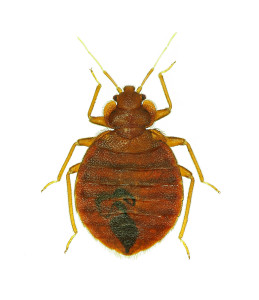
Our Minnesota Bed Bug Control Services are backed by a 30 Day 100% Satisfaction Guarantee. If your bed bug problem is not completely eliminated and returns within 30 days of treatment we will come back and retreat at no cost to you.
Complete Bed Bug Control is a proud member of IBBRA “International Bed Bug Research authority. As members of IBBRA we are backed by a professional scientific advisory board comprised of internationally recognized entomologists, doctors, and scientists who like us dedicate our careers to the research, education, prevention, and elimination of bed bugs.
Our Complete Bed Bug Control experts preferred method of bed bug control is heat. Heat treatments eliminate bed bugs in all stages including the hard to eliminate eggs in just one visit, compared to three or more visits with insecticides and taking 2 or more months time to completely exterminate the bugs and their eggs. The home and its affected areas are heated to 135 degrees that is 15 degrees hotter than required to kill bed bugs in all life cycles. We utilize an unmarked Temp Air thermal remediation trailer with diesel generator and electric heaters complete with computerized monitoring equipment to ensure every area of the home is heated and held at that temp for the proper time.
Request a Call Back
[caldera_form id=”CF5af0dfa9b4a98″]
Bed Bug Prevention
- Educate yourself and your family on bed bugs, also if you have employees or tenants they should be educated on bed bugs as well. Early detection is everything and education gets you there.
- Avoid clutter like most pests bed bugs thrive in clutter and infestations take longer to detect.
- Regularly inspect bedding, box spring, mattress seems, headboards and furniture near your beds for bed bugs and signs of activity. Always use a flashlight when performing inspections.
- Avoid buying used furniture and mattresses. Specially avoid picking up furniture mattresses or other items from a dumpster area or curbside.
- Use caution when purchasing used clothing, always launder items on the highest temp setting before bringing items home.
- Use certified bed bug proof box spring and mattress encasements.
- Inspect items a visitor may bring into your home.
- After having an overnight guest, inspect room and launder bedding.
- Use bed bug monitoring devices.
Bed Bug Traveling Tips
- Stay alert when traveling! Inspect rooms paying special attention to the seams on the bed, bedding, box spring, the front and back of the headboard, nightstands, dressers and floor trim.
- If you find something suspicious notify management and ask to change rooms immediately away from the possibly infested room.
- Keep luggage and belongings like shoes and clothing up and away from the beds. Store items in the bath tub or up on the luggage rack.
- Storing luggage and other items in closed garbage bags can also decrease the chances of bringing these expert hitch hiking pests home.
- Inspect, treat or heat treat luggage and all other items immediately after returning home or if possible before returning home.
Bed Bugs – A History
- “Don’t let the bed bugs bite” is no longer a nursery rhyme joke!
- Bed bugs are not a new problem. They were mentioned as early as 400 B.C.
- Bed bugs were believed by many to have medicinal value up until the 18th century.
- Bed bugs are thought to have evolved from bat bugs in the Middle East where people and bats inhabited caves together.
- Bed bugs were very common up until the 1930’s. In the 30’s it is estimated that as many as 1 in 3 homes had bed bug infestations.
- The invention of DDT nearly eliminated bed bugs from most developed nations for decades.
Reasons for The Great Bed Bug Resurgence
- They have become incredibly resistant to most pesticides.
- Bed bugs are fantastic at hiding, infestations can go on for long periods undetected.
- Bed bugs are great at hitch hiking and moving from one residence to another unnoticed.
- Lack of knowledge by pest control professionals.
- Lack of knowledge by the general public.
- Increased travel, particularly international travel.
Bed Bug Bites
- Approximately 75% of the general population has a reaction caused by bed bug bites, compared to only approximately 50% of the elderly population.
- Bites from bed bugs usually will not require any medical treatment. If bites are irritating and itchy people often find relief using benadryl. Some people also find relief by placing a warm wash cloth on the affected area. Avoid scratching the bites as this can cause infection.
- Diagnosing a bed bug bite is extremely difficult. finding and saving a specimen that bit you is the best way to identify bed bug bites.
- Bed bugs usually feed at night when their host is sleeping.
- Bed bugs typically feed for between 3 and 10 minutes.
- Typically bites are painless at first but can develop into itchy welts on those affected.
- Bed bug bites are most commonly found on exposed skin often around the face, neck, arms, and hands.
- Symptoms from bites develop anywhere from a few minuets to days after the bite.
- Symptoms from bites usually fade away within 1 to 2 weeks.
- Some victims of bed bug infestations report insomnia and anxiety from the bites and the infestation.
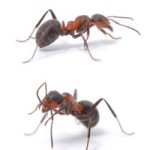 Ants
Ants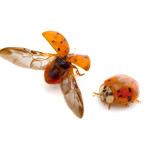 Asian Beetles
Asian Beetles Bats
Bats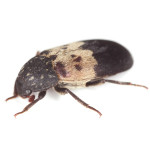 Beetles
Beetles Box Elder Bugs
Box Elder Bugs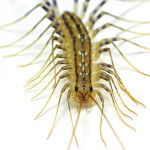 Centipedes
Centipedes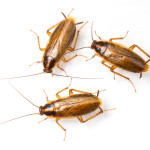 Cockroaches
Cockroaches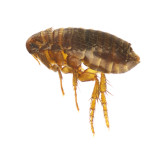 Fleas
Fleas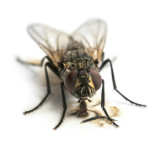 Flies
Flies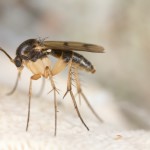 Gnats
Gnats Mice
Mice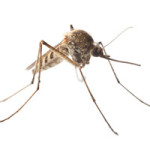 Mosquitoes
Mosquitoes Raccoons
Raccoons Rats
Rats Skunks
Skunks Spiders
Spiders Squirrels
Squirrels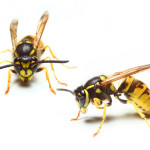 Wasps and Hornets
Wasps and Hornets
